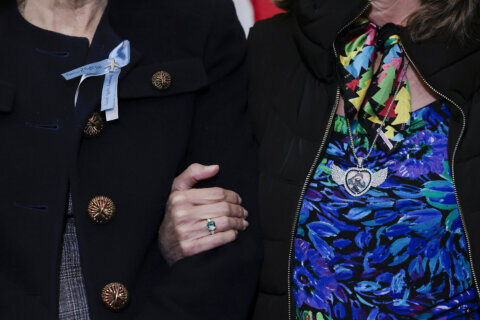WASHINGTON — As the Virginia Department of Transportation gets ready to begin work converting Interstate 66 HOV lanes into Express Lanes, Virginia Railway Express says it needs more money just to stay afloat.
VRE CEO Doug Allen told the Commonwealth Transportation Board that annual operating and capital expenses are rising faster than annual revenues. However, he said the commuter rail can’t keep turning to riders to pay for the costs and local jurisdictions to keep tossing in money.
Instead, officials argued the commonwealth should invest more money into the service since it benefits a wide area and is cheaper than other alternatives.
Allen said VRE riders pay about 55 percent of the rail system’s operating costs, more than most other systems across the country. A Chicago METRA study found that VRE riders pay the second-highest average commuter rail fare in the nation at $7.48 — 20 cents less than New York’s Metro-North. Maryland’s MARC service was the sixth-most expensive at $4.89.
The commuter rail argued that more than just residents of the D.C. suburbs benefit — a large portion of the commonwealth does, too. A survey done by VRE in 2015 showed that riders generally come from anywhere north of I-64, with more people from Richmond using the train than Arlington.
Allen told the board that VRE can carry 5,000 passengers an hour. To carry that same capacity on a highway, VDOT would need to build an extra lane in each direction, costing the state a billion dollars.
At the moment, VRE said it needs $41.7 million dollars a year in assistance just to maintain its current state of 19,200 daily riders. The rail service said $44.5 million would cover its natural growth to serve an estimated 31,100 riders. To fund what it calls its VRE System Plan 2040, it would need $66.4 million to serve roughly 52,240 daily riders — more than two and a half times its current ridership.
The 2040 plan would include longer trains, more frequent trains, additional platforms, another CSX track for trains to use, improvements to Long Bridge as well as an extension to Gainesville and Haymarket.
Some funding ideas presented by the board for future consideration were to use a portion of the future Interstate 395 Express Lane funds for VRE. Another board member suggested increasing fares and let the region’s HOT lanes compete with the mass transit fares.
Virginia Transportation Secretary Aubrey Layne told board members it is important to identify and address these potential issues now to avoid the issues that now plague the D.C. Metro system.
A breakdown of the fees local jurisdictions pay for VRE service:
- Arlington County and Alexandria each pay a flat fee of about $150,000 a year, since they are destination locations and many residents there do not use the service.
- Fairfax County funds its contribution through its general fund, although it funds its WMATA contribution through the gas tax.
- Prince William County funds both the PRTC bus service and VRE through its gas tax, but those costs exceed that tax revenue.
- Manassas, Manassas Park and Fredericksburg each contribute through their gas taxes, but they each have a limited gas tax base.
- Stafford County funds VRE through its gas tax, but it had to stop road projects because of a funding shortage.
- Spotsylvania County relies on its gas tax, but its train station opened just last year.







